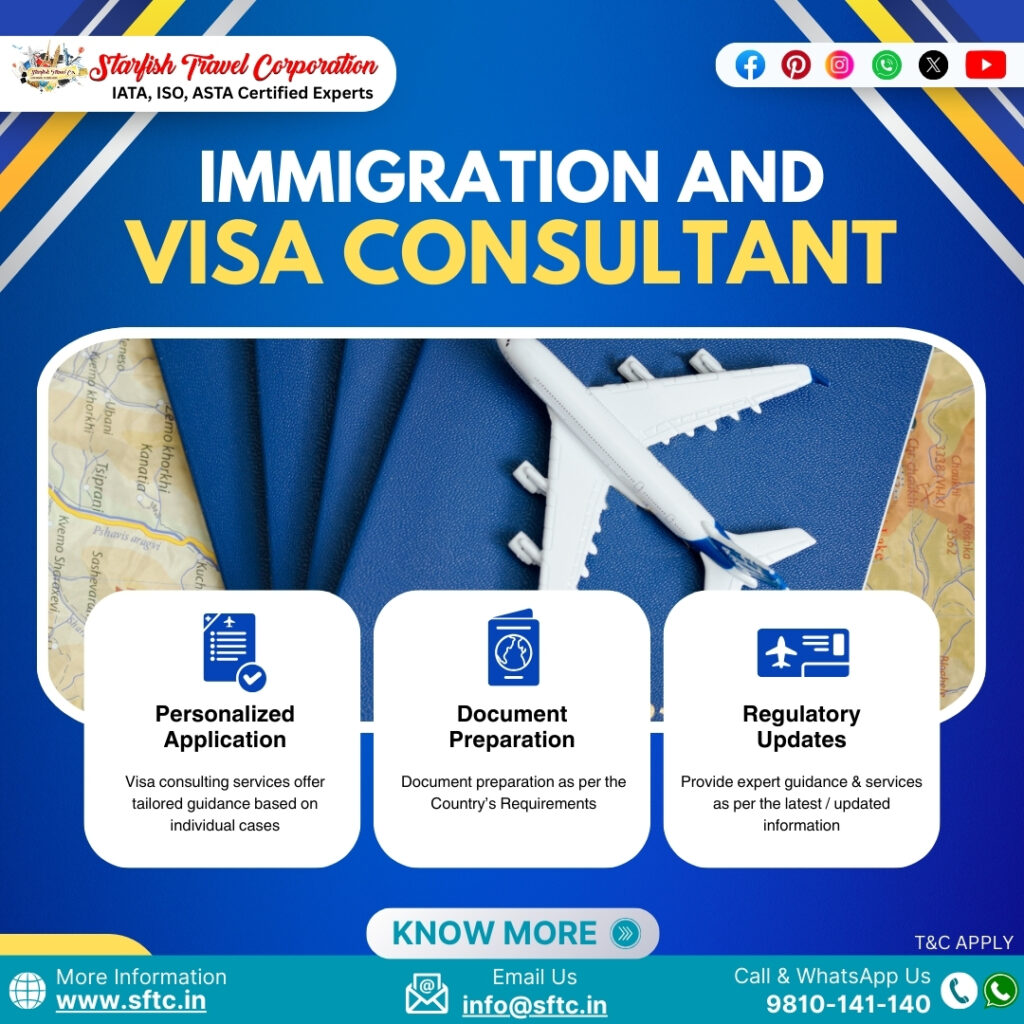A Complete Guide On Visa Documentations For All Countries
A COMPLETE GUIDE ON VISA DOCUMENTATIONS FOR ALL COUNTRIES A Complete Guide On Visa Documentations For All Countries Understanding Visa: A Visa is kind of a permission given by the consulate of that country to allow an applicant of a second country to enter in their national territory for the specified purpose explained by the applicant of the second country. In Starfish Corporation, we explain this to our clients in a Layman language, it is similar to an invitation to a wedding ceremony. A visa, weather it is in hard sticker form or electronic form, acts like a legal pass to enter in someone else’s property premises. A visa is an official authorization that allows you to enter, stay, or travel through a foreign country legally. Each country issues different visa types based on travel purpose such as tourist, work, study, or business. Visa requirements vary by nationality, destination country, and travel purpose. Always check document requirements before applying to avoid delays or rejection. Processing time differs for every visa category and embassy. Some visas require an interview, biometrics, or medical examination. Financial proof is commonly required to show you can support yourself abroad. Travel insurance is mandatory for many countries. Visa validity and stay duration are not always the same — check both carefully. Required Documents: Financial documents: It may include the applicant’s personal bank account records which must pe presented in the form of an authorized bank statement. We at Starfish Corporation pay extreme attention to this point. The tenure of the statement will vary country to country. Another important document is the applicant’s tax declarations. The tenure of this document also varies with country to country. The consulate is most likely to cross verify the documents presented before him, hence avoid taking any short cut or falling into the hands of so called “visa guarantee” Ponzi schemes. Professional Documents: This category is one of the most neglected and misunderstood categories among visa seekers. Here, the applicant is required to show the proof of his occupation. We at Starfish Corporation ask our clients that if he is employed somewhere and submit an offer letter or a sanctioned leave letter to prove it. It is also very important to note that embassy reserves the full rights to cross verify the documents submitted, hence avoid anything fishy . Travel Documents: This is an easy category, here the consular is interested to know your plans of activities after arriving in his country. Make a travel program which you wish to follow upon arrival. It is formally known as travel itinerary. Next is your preferred flight and hotel bookings. Ironically, the embassy (most of the times) does not want a confirmed flight to hotel bookings unless specified in their list of Visa required documents, then again, some individuals have this dogma of presenting the confirmed documents whereas it may not help but dent the positive outcomes. How could that be? Well, that’s most likely a mystery. Travel Insurance: Yes, it is a mandatory document. In fact, it must not be avoided even if it is not mandatory. The travel insurance should cover the entire stay along with medical claim just in case of emergencies and embassy document requirements for visa. The requirement of the insurance varies with country to country . Click here Conclusion Understanding visa documentation is essential for a smooth and successful travel experience. By preparing the correct documents, following embassy guidelines, and applying on time, applicants can greatly improve their chances of approval. Always verify country-specific requirements and ensure accuracy in every detail to avoid delays or rejection. Just as we have explained above, it is very important to submit genuine documents as they are prone to the consulate’s verification processes. Also present your case with important details duly explained in a covering letter presented properly in front of an officer. In short get yourself a very genuine and reliable consultant (in case if you still haven’t) who can assist your application properly as per the regulations. You may also reach us at Starfish Corporation where we devout ourselves towards a visa application. We won’t just apply the visa, we will make the profile strong enough and it will become eligible enough to get a visa by itself.
A Complete Guide On Visa Documentations For All Countries Read More »


